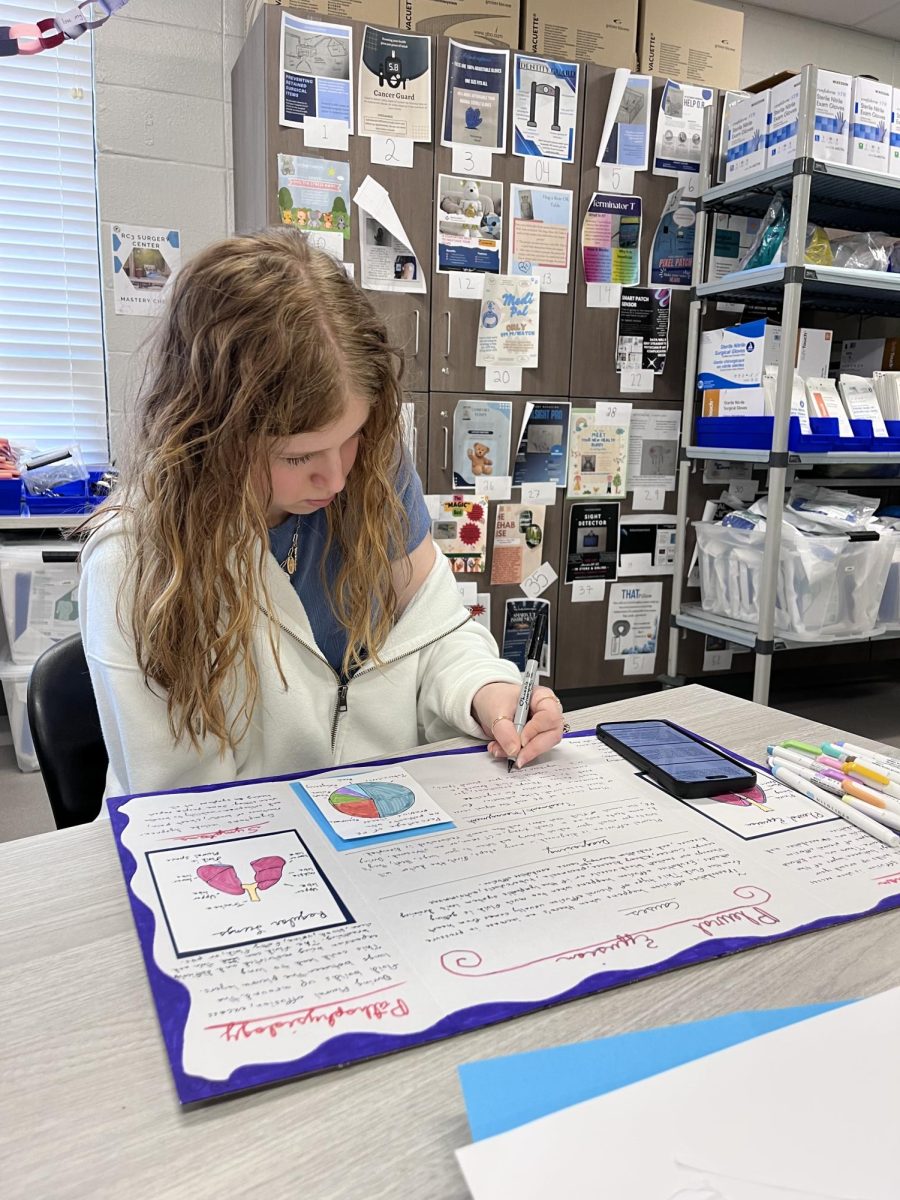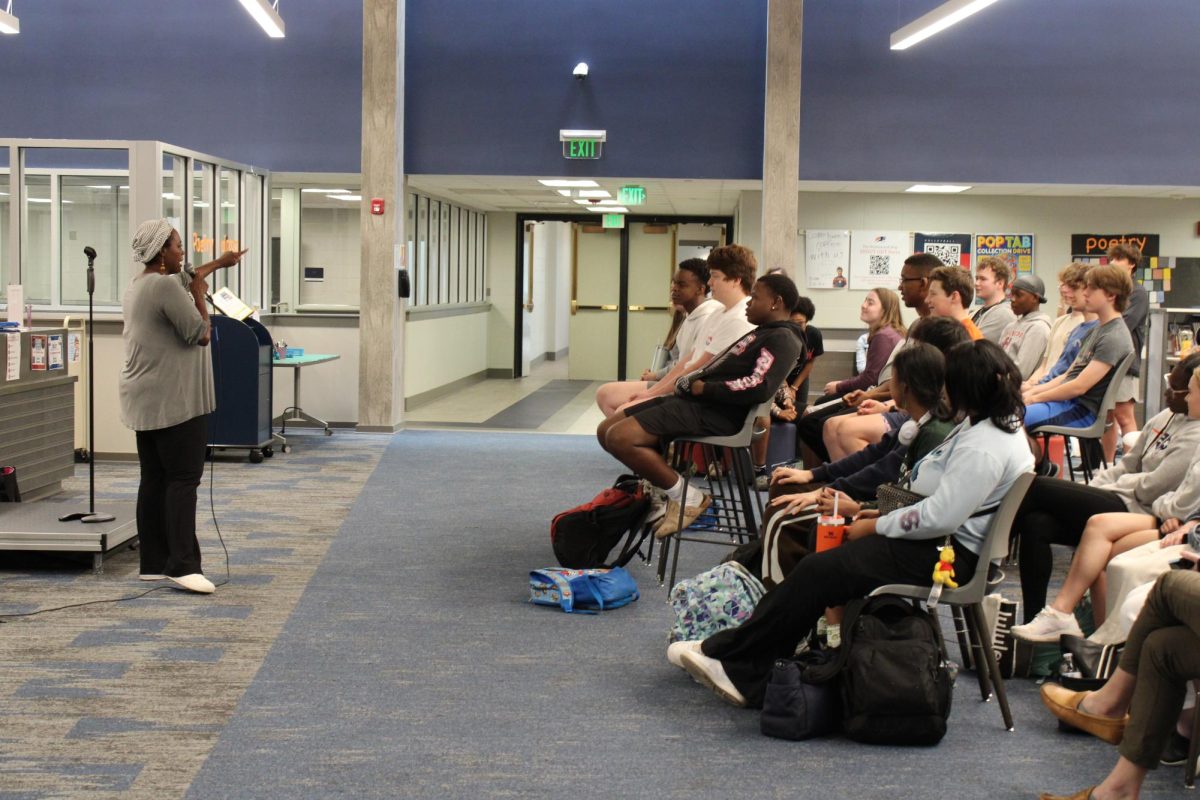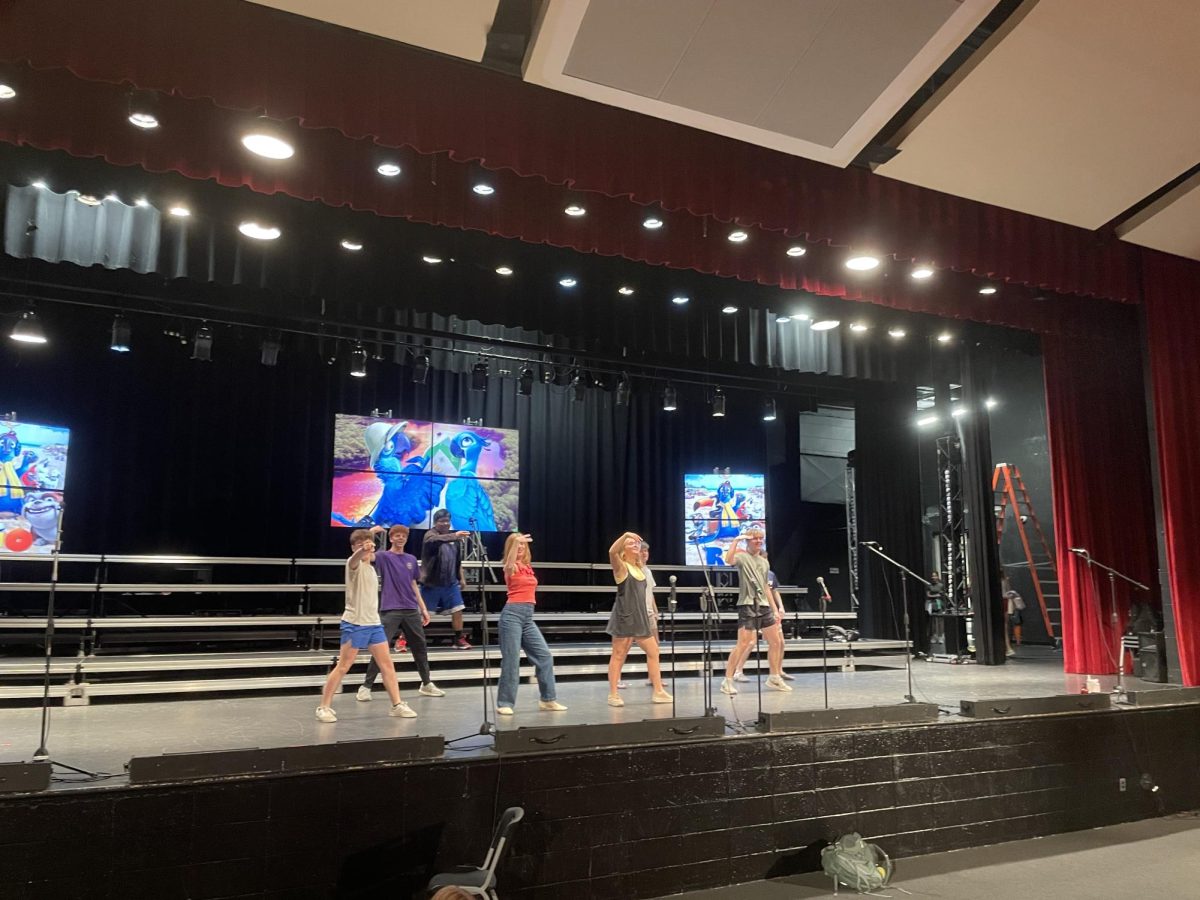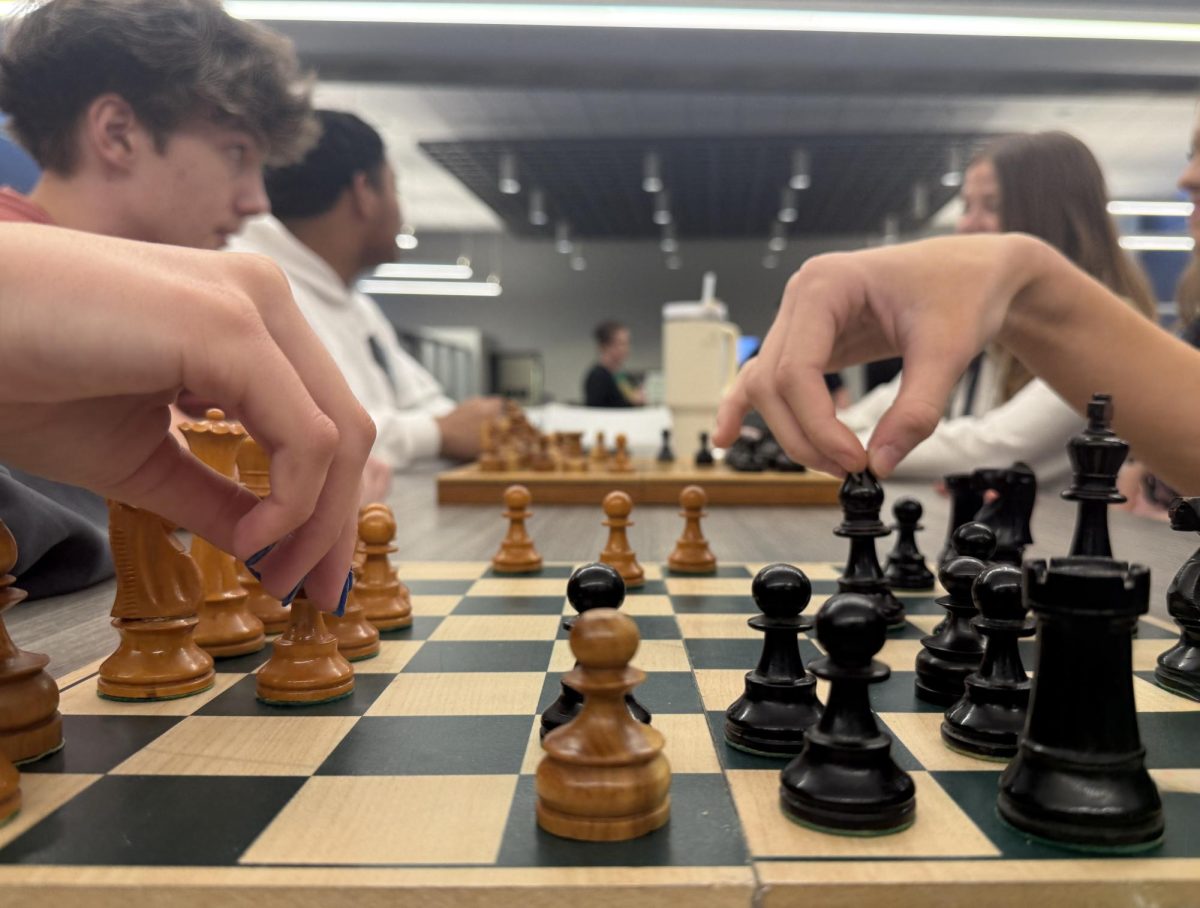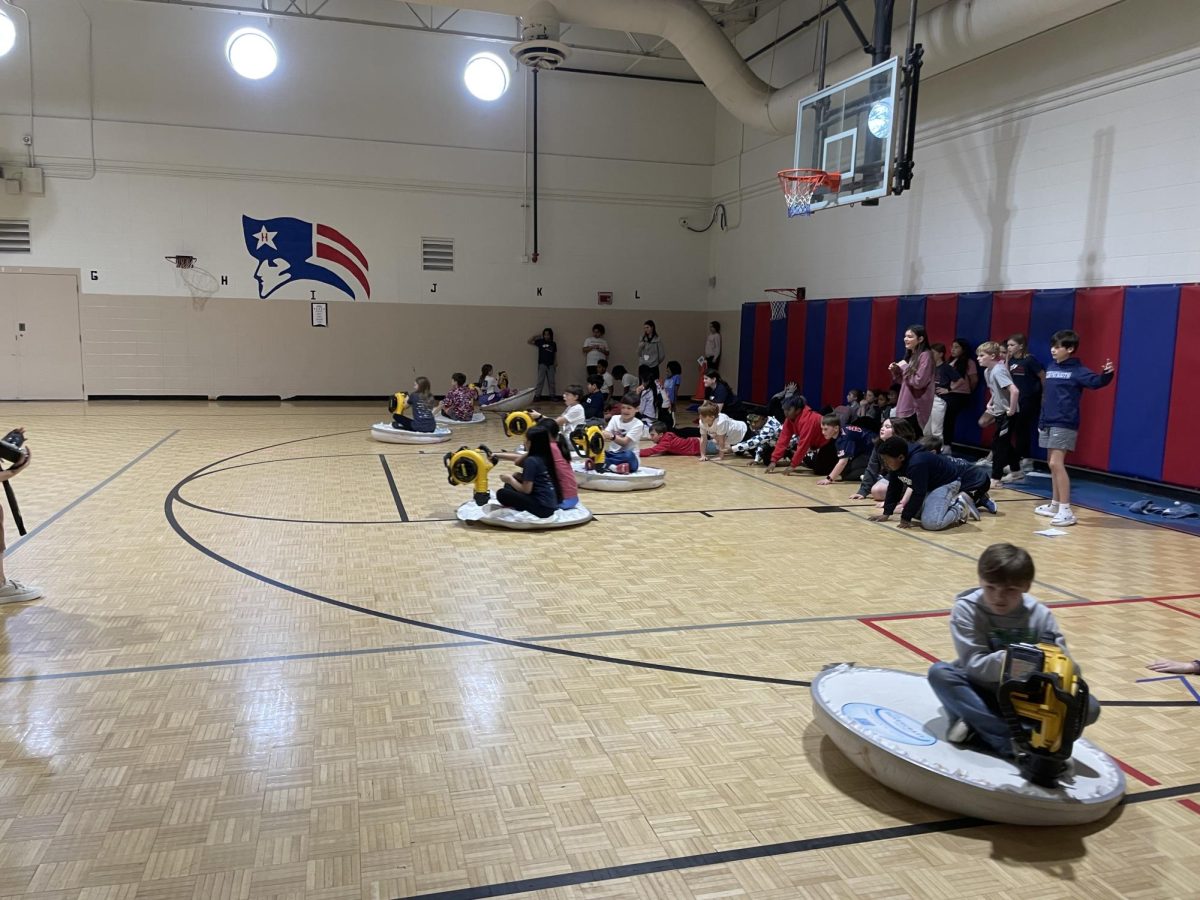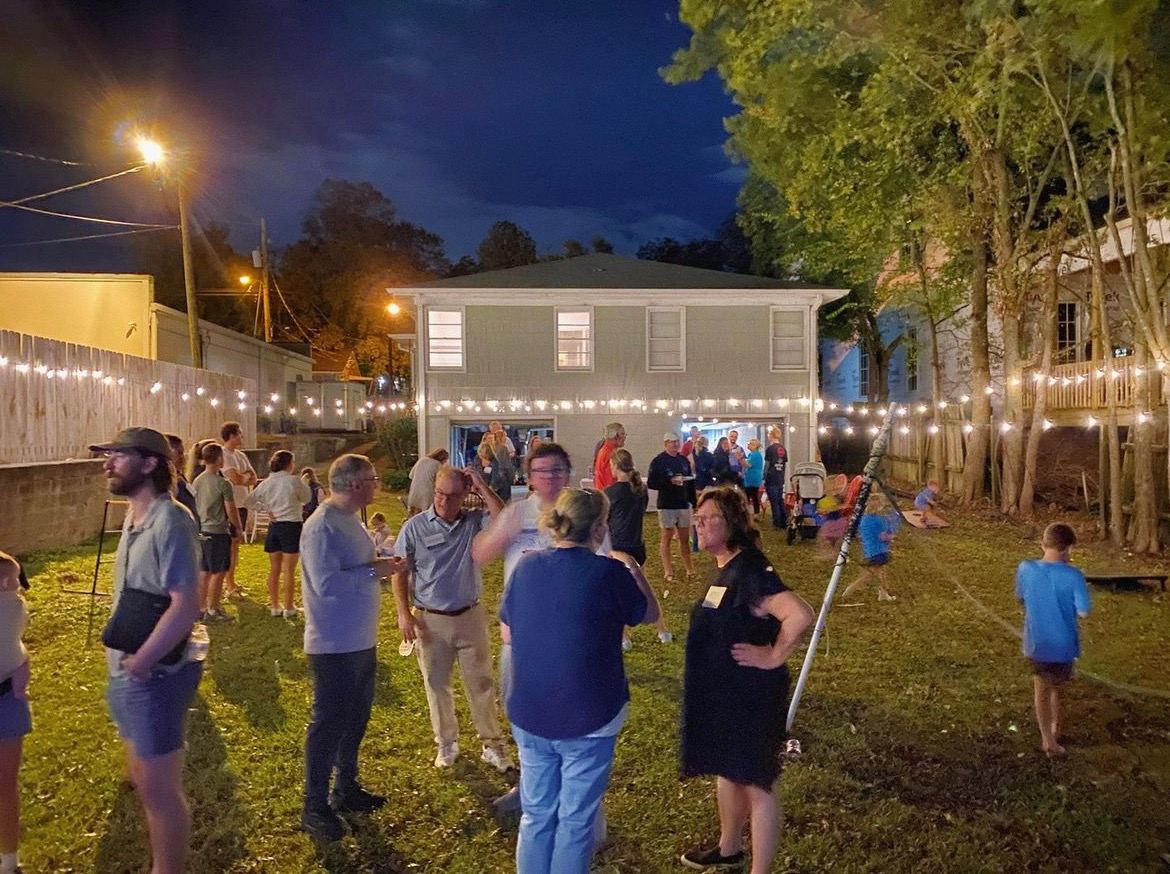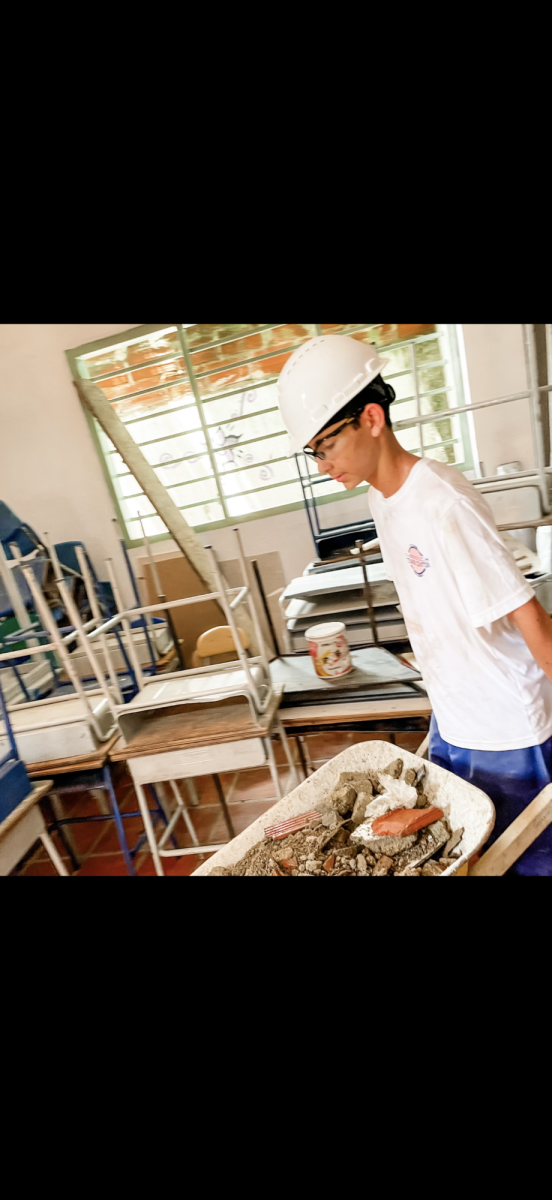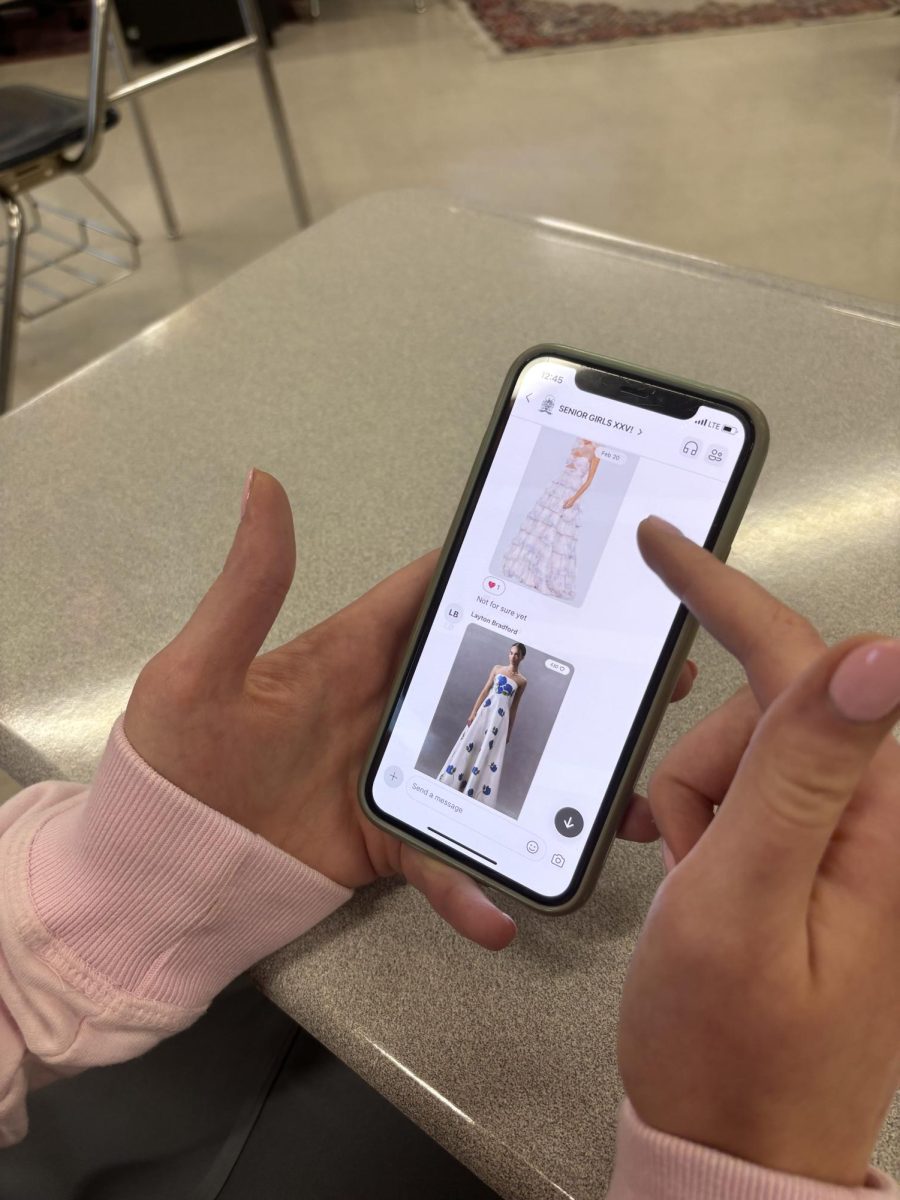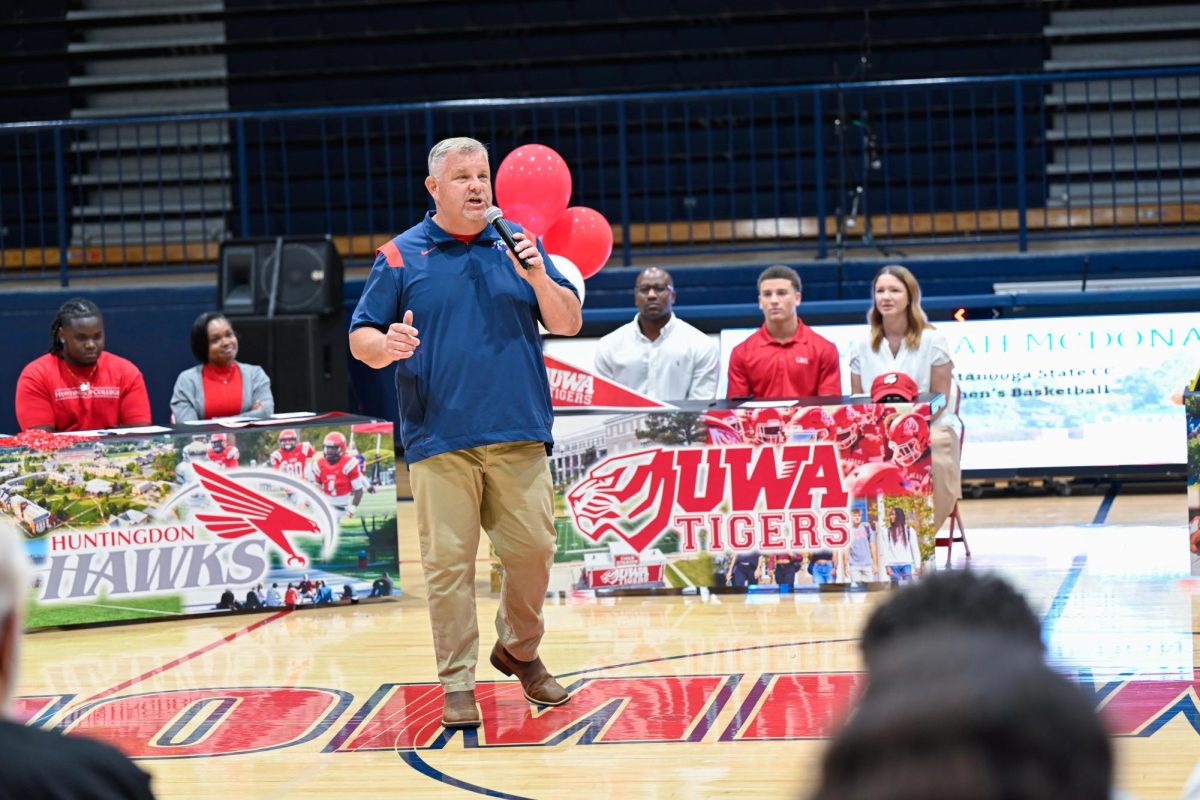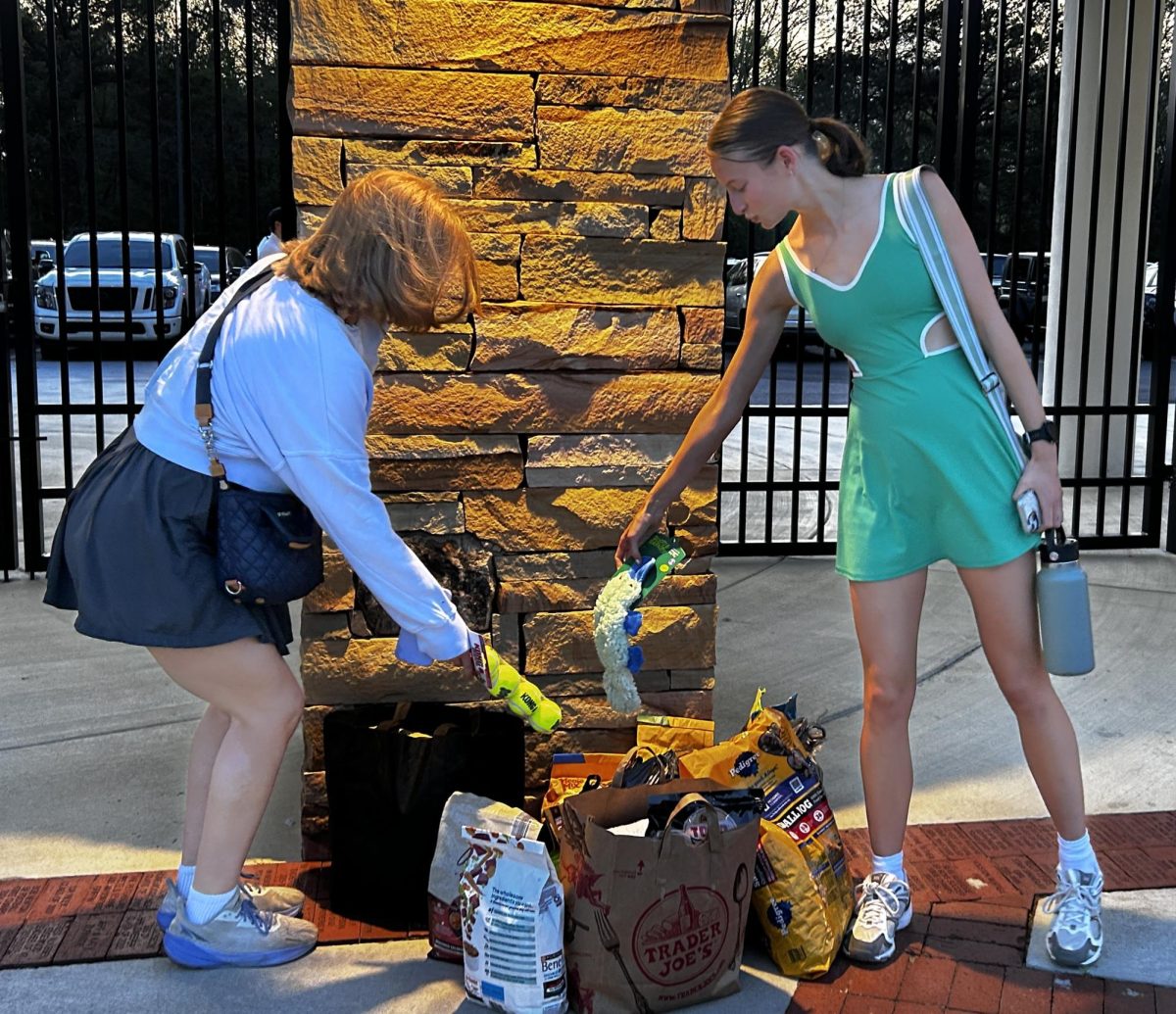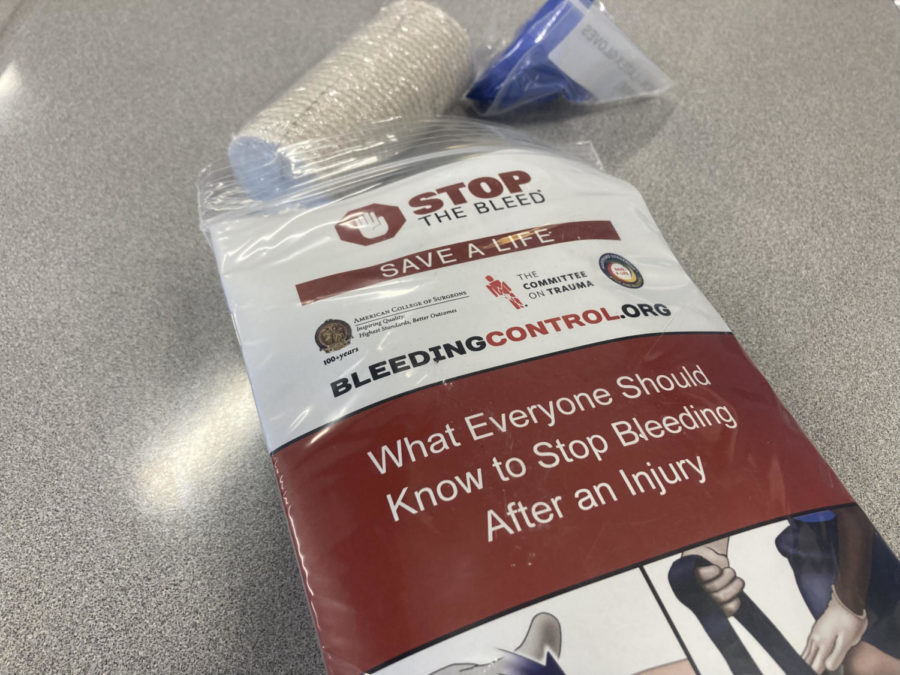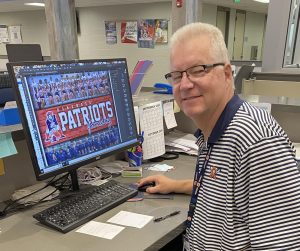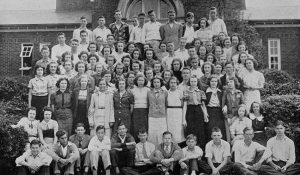Teachers stop the bleed
Stop the Bleed tourniquet kits that are distributed to teachers for their classrooms (photo by Mary Claire Ingram).
September 29, 2022
Many students don’t know, but a teacher could save your life. If there is an emergency, chances are that a teacher will already be at the scene and are now ready to help.
“Sometimes we’re the first responders,” Phillips said, explaining how if there’s an emergency and somebody needs medical attention to stop a bleed, teachers are equipt to do so before medical professionals arrive.
Over the summer, the HHS staff underwent a Stop the Bleed training session. Stop the Bleed is an organization that educates people around the world on how to prevent somebody from bleeding out.
According to HHS teachers Catherine Smith, Rebecca Phillips, and Jenny Firth, they learned how to pack a wound and apply a tourniquet during the training. “In that situation, there’s always going to be shock and surprise, so being able to put it on each other can take away some of the shock of it,” said Firth.
The faculty prepared to respond in any situation that may arise in which a student or staff member requires medical attention.
“I think you have to be realistic and be prepared for all possibilities… it’s like having a tornado drill,” said Phillips. The teachers explained how the training isn’t to scare anyone, but rather to be prepared for any situation so they can respond in the best way possible.
They express that the training isn’t anticipating a disaster striking the school, but rather having a plan of action in order to best deal with any accident, no matter how big or small.
Not only are the skills they acquired helpful in a school setting, but also in everyday life. “It makes me feel more confident just as a person,” Smith said. Smith and Phillips both used the analogy of a child getting badly hurt on a playground. They would be equipt to stop the child from losing a harmful amount of blood.
Firth even says that the medical knowledge makes her feel more prepared in the lab as a chemistry teacher.
They said that the faculty has this training a few years ago, but that the refresher was necessary. Phillips explained how the training is the same as any other skill: knowledge is forgotten over time and practicing sharpened their response ability.
Overall, these teachers reflect on the experience with a feeling of reassurance and confidence that they can save students and anyone else if the situation ever presents itself. They hope that this training reassures students that the staff is prepared to react and makes students feel safe in the face of any accident.


